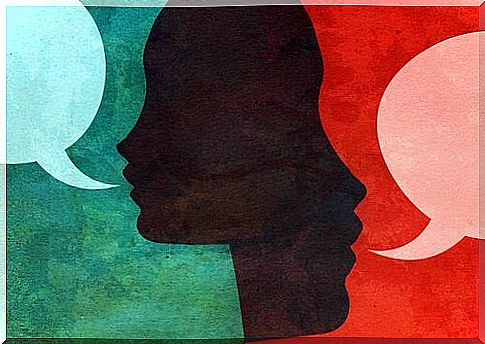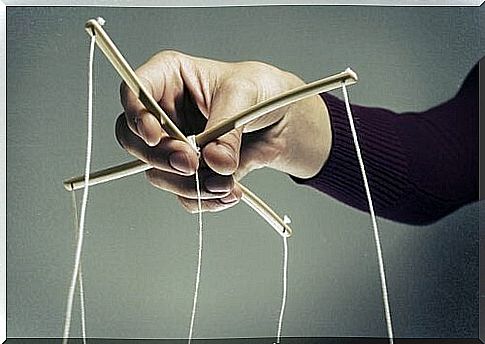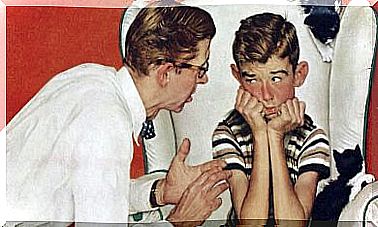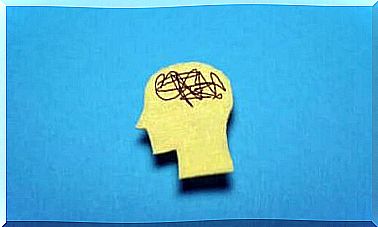5 Psychological Theories To Increase Our Ability To Persuade

As John Ruskin has said, “He who has the truth in his heart must never fear that his tongue lacks the power of persuasion. ” Probably the best option. However, psychology has studied other theories which can be very useful in certain specific situations.
Before continuing, know that by persuasion we mean the ability to seduce, convince, impress or fascinate a person.
The term “persuasion” may have taken on some negative connotations in recent years. We live in a climate of political instability and high consumerism, so much so that we are constantly bombarded with persuasive messages whose interests are not always as clear as they should be, or which are clear. , but far from belonging to noble causes.

It is therefore important to distinguish between persuasion and manipulation, and the latter lies in honesty, which exists in persuasion but not in manipulation ; in a persuasive perspective, the other knows, since this is how things were presented to him, that we are trying to convince him of something, while in a manipulative perspective, this information tends to be obscured, hidden.
Persuasion, understood as the ability to influence another person in an honest manner, is a skill that gives great advantage to those who have developed it. This is why it is important to know some theories that have been shown to be valid over time.
A determined attitude expressed with certainty is very resistant to persuasion. However, she softens if she expresses herself with uncertainty. In this case, arguments based on an emotional basis are very resistant to logic; and vice versa.
Thus, by carrying this hypothesis promulgated by Clarkson, Tbormala and Rucker to practice, your possibilities of influence will increase if the attitudes you project have the same meaning as those of the interlocutor. This is precisely what gives the theory a name: if you want to persuade someone on a sports-related topic and both of you support the same sports team, for example the power of your arguments will then be amplified.
This theory uses four maxims in order to seduce a person; make sure to provide the most complete information possible, ensure the authenticity of this information, its relevance to the subject being dealt with, and present it in such a way that it can be completely understandable to the ‘other.

This theory, which may sound very bad, is actually very logical and sensible. As Ruskin said, if the truth is on your side, you don’t have to worry about not being persuasive. However, it is necessary to be well prepared and to have a great deal of knowledge on the subject, as well as to know how to explain it, in order to convince someone.
However, it is difficult to defend yourself against such a strategy, especially if your interviewer is good with words. It is necessary to observe his non-verbal language, which reflects contradictions between the assurance of his speech and what his gestures say. This, by having a little idea of the subject, can point out to you what is the most fragile part of his argument.
This psychological theory of persuasion is widely used in the world of advertising. It is based on the networks of association that we must establish in our memory. Indeed, when a memory is activated, a concept or a sensation in turn allows the activation, for a limited time, of everything associated with this memory. For example, if someone tells you about the breakfasts of your childhood, it will be much easier to get you to buy milk afterwards.
In fact, the priming has to be very subtle; thus, the person who is the object of the stimulation is not aware of the way in which he is influenced, even if he knows that he is in a mark of influence, since it is a question of advertising. In another case, we would speak of manipulation.
This is a very widely accepted social norm. It’s as easy as giving something away and waiting for someone to return the favor. It is not a voluntary act, but established and accepted by all.

Bringing this standard into practice can be as simple as saying thank you. Faced with the offer you make, you wait for your interlocutor to return this politeness to you, and the reciprocity must be proportional to the type of service rendered.
In a way, all human beings need to control their world. Having free will over what surrounds us is important. This is why when something is scarce, the desire to have it increases.
This psychological technique is also widely used in the advertising world; think of famous slogans. So, if you consider yourself a victim of this practice, ask yourself if you really need the good, the feeling or the rare emotion that is offered to you.
All of these psychological theories on persuasion go beyond the mere theoretical field. They have been put into practice and demonstrated to be functional. In fact, it is quite likely that you yourself have used them at some point in your life without even realizing it.









